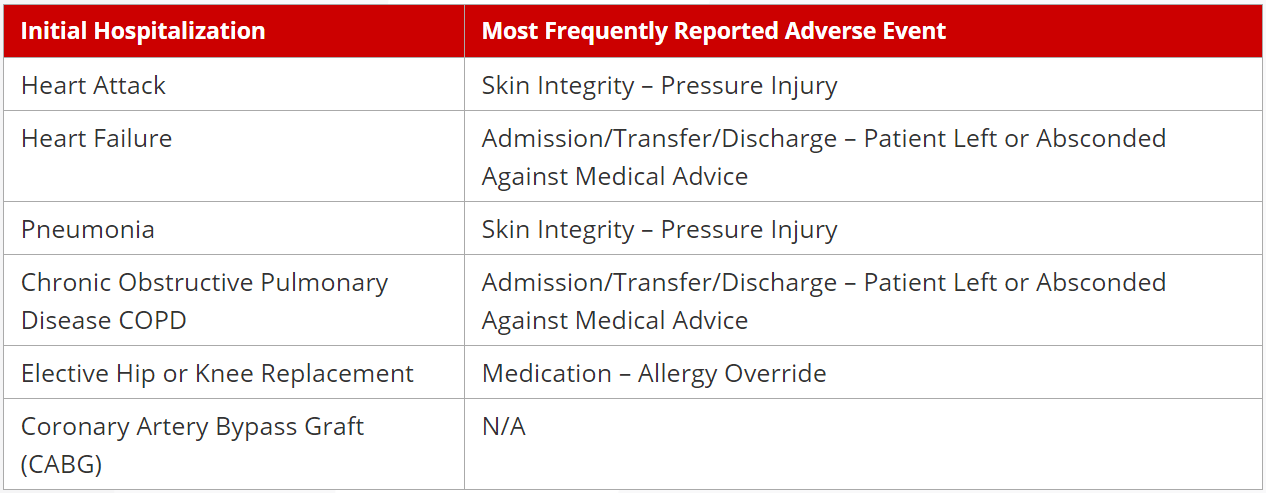Powered by the world’s largest real-world evidence base on patient safety and healthcare quality, the Quantros Value-based Care Factoid Series provides informative indicators and measures of clinical and financial performance that matter in value-based reimbursement and payment models.
Delivered in partnership with Becker’s Hospital Review, we are confident these research insights and greater transparency will help all stakeholders to accurately measure and benchmark progress on the journey to value-based, higher-quality and safer care. To read the rest of the series of factoids, click here.
Most Common Adverse Events Linked to Unplanned Hospital Readmissions
Medical errors are a major contributor to preventable readmissions and many result in reduced payments from Medicare. Quantros reviewed 90 days’ worth of adverse event data linked to initial hospitalizations for select conditions and found that skin integrity, admission/transfer/discharge, and medication events are among the most frequently reported adverse events associated with initial hospitalizations for heart attack, heart failure, pneumonia, chronic obstructive pulmonary disease (COPD), elective hip or knee replacement, and coronary artery bypass graft (CABG). The event data was reported in Safety Event Manager between 7/1/17 and 10/10/17.


